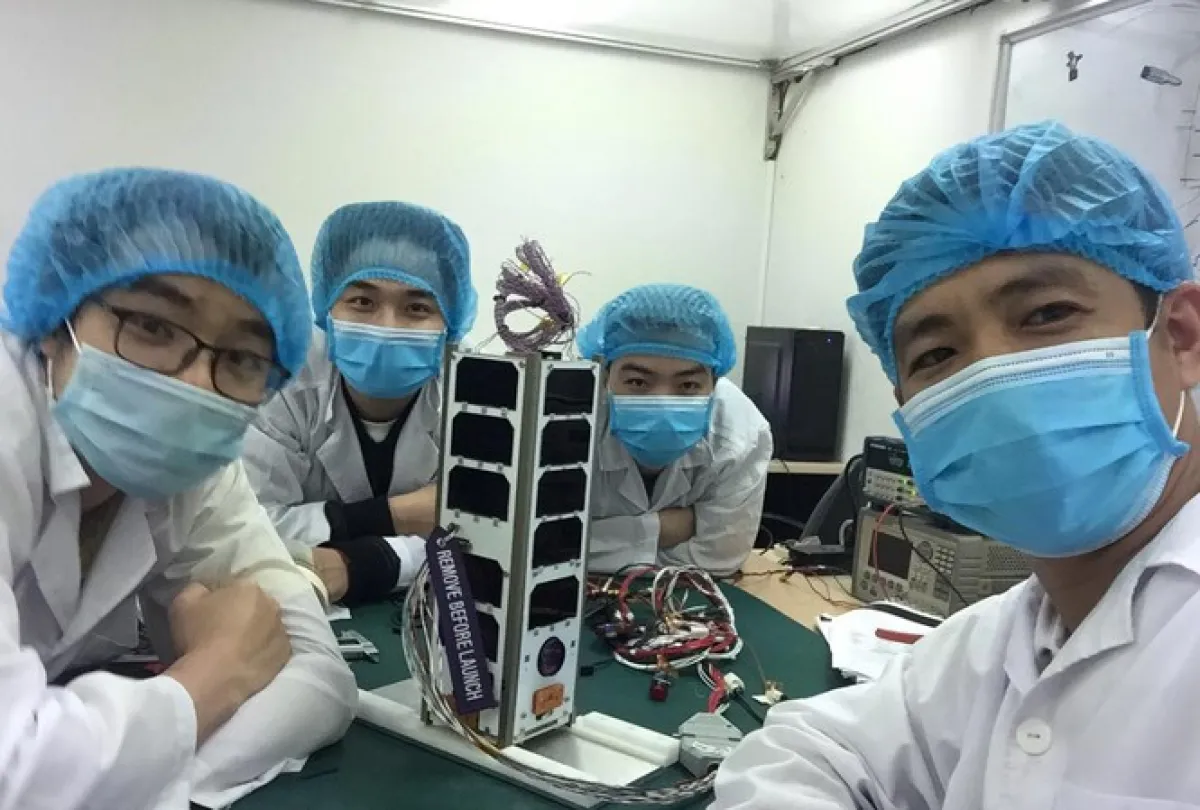Vietnam-made satellite to be put into orbit this September
Vietnam-made satellite weighs some four kilos and belongs to the CubeSat category, a type of miniaturized satellite for space research that is made up of multiple 10 cm × 10 cm × 10 cm modules.
Vietnam-made micro-satellite NanoDragon will go through a final test this month before it is put into orbit this September.
Developed and built by the Vietnam National Space Center (VNSC) engineers, NanoDragon is set to be sent to the Kyushu Institute of Technology in Japan between March 8-22, to undergo quality control before being launched into the orbit, VNSC director Pham Anh Tuan said on March 2.
Engineers at the Vietnam National Space Center works on the NanoDragon satellite. Photo: VNSC |
The satellite weighs some four kilos and belongs to the CubeSat category, a type of miniaturized satellite for space research that is made up of multiple 10 cm × 10 cm × 10 cm modules.
In Japan, NanoDragon will undergo further tests in a simulating environment. Following the completion of these tests, the satellite is due to be returned to Vietnam before being launched by the Japanese Epsilon missile in September at free cost in line with the "Innovative satellite technology demonstration" program.
NanoDragon is the product of Vietnam's nano-sized micro-satellite project for the 2016-2020 period, the VNSC director said, adding that its main task will be to integrate an Automatic Identification System (AIS) used for the purpose of tracking and monitoring vessels at sea.
Besides, it will make use of an optical imaging device in order to verify the quality of the satellite posture controller while operating in orbit, Anh Tuan added.
Currently, the VNSC engineers are putting the finishing touches to installing the ground station which will operate the satellite following its launch.
The VNSC is a pioneer agency in the country that researches and develops modern space technologies that aim to support economic development and environmental protection locally.
In addition to NanoDragon, the VNSC in 2013 researched and manufactured the PicoDragon satellite which weighs one kilogram, along with the MicroDragon satellite which weighs five kilos, both of which proved to be highly-successful projects. PicoDragon was Vietnam’s first indigenous satellite sent into space.
Vietnam is one of the countries in the world to be most affected by global warming and climate change. Space services and technologies will help the nation to gain a better understanding of climate change whilst supporting the process of monitoring and prevention of natural disasters, thereby contributing to mitigating their consequences.










